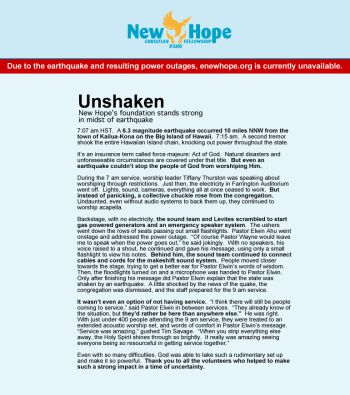The Bible didn’t survive until the 21st century by accident. It took the commitment of thousands of monks who chose to study the scriptures over the centuries by hand-writing new copies of the manuscripts. The process was tedious and time-consuming, but for these monks it was an act of devotion. It wasn’t until Gutenberg’s printing press that the Bible could truly be distributed to the masses.
Today, monks are no longer needed to ensure the Bible’s availability, but there are scholars that continue to study the Word and find new interpretations to share with others. One of those people is Sean Boisen. In addition to maintaining his blog, Boisen takes information about the Bible from a variety of sources, analyzes it, converts it into modern, standards-compliant formats, and distributes the results at no charge on his web site, Semantic Bible. The beauty of his work is that it extracts concepts from the text and formats them in a way that computers can use to draw conclusions and find patterns.
Boisen has lofty goals, but in a blog entry he posted yesterday, he expresses his frustration with a license on an e-Bible that prevents him from developing anything based on it.
I understand his disappointment. I’ve also found that copyright has become a stumbling block rather than a means to encourage innovation. With the exception of large companies, I think many people who create find ourselves stymied when we want to share or improve on the ideas of others. It’s sad, but society in this age compartmentalizes information through laws like patents and copyrights to such an extent that improving on them is usually out of the question.
One of the underlying causes for the problem is the length of time that copyrights are valid. While copyright has a purpose, it’s been abused and lengthened far beyond what’s needed to stimulate progress – and arguably, progress has been eliminated altogether because very few copyrighted works have expired in the last 70 years. I think that it’s very disappointing that books written in the 1930’s still can’t be used freely today, and yet the ideas contained in them are being lost forever due to damage, theft, and other causes.
We are fortunate to have a plethora of English translations of the Bible that make it accessible to everybody. The publishers of these translations provide a useful service, and they should be paid, but 100 years is too long to keep a translation locked up. (I blogged my thoughts about Christian commercialism in 2003.)
The irony of all this is that the original texts these scholars worked from would probably be inaccessible today if copyright law prevented the monks from hand-copying them over hundreds of years.
Gutenberg was extremely excited about the possibility of using the printing press as a tool to enable copies of the Bible to spread:
Religious truth is captive in a small number of little manuscripts which guard the common treasures, instead of expanding them. Let us break the seal which binds these holy things…
I won’t be surprised if Gutenberg’s trend of “breaking the seal” reverses itself very soon. We’re already beginning to see lots of content, including Bibles, protected by digital restrictions management that threatens to take the bits that hold our culture and faith together as hostages.
I truly consider Sean Boisen a 21st century monk. Our society needs to loosen the chains of copyright law so he can accomplish the work he’s been called to do.

